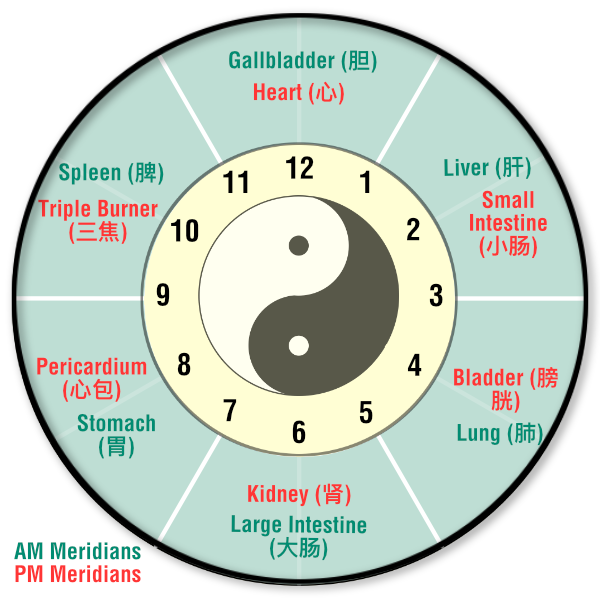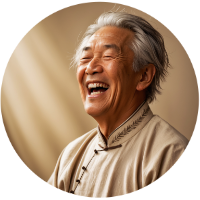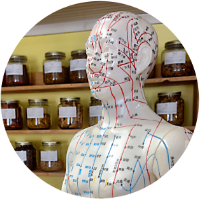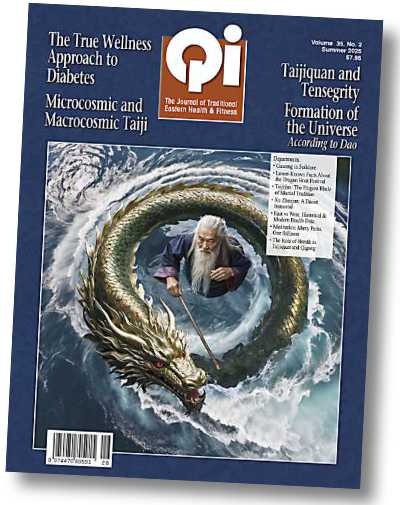Your Inner Clock:
How TCM Tells Time Inside the Body
Have you ever noticed you wake up at the same time every night, or that you feel unusually tired or alert at specific hours of the day? According to Traditional Chinese Medicine (TCM), this may not be random. Instead, it could reflect the natural rhythm of your internal energy—or qi (气)—as it flows through the body on a 24-hour cycle known as the “organ clock.”
 Also called the Horary Cycle (子午流注 Zǐwǔ Liúzhù), this concept is rooted in classical Chinese medical texts such as the Huangdi Neijing (Yellow Emperor’s Inner Classic), which describe how qi circulates through the twelve main meridians in a fixed sequence. Each two-hour segment of the day is linked to a specific organ system and its corresponding meridian. During that period, the organ is considered to be at its energetic peak—most active, most functional, and most accessible for healing.
Also called the Horary Cycle (子午流注 Zǐwǔ Liúzhù), this concept is rooted in classical Chinese medical texts such as the Huangdi Neijing (Yellow Emperor’s Inner Classic), which describe how qi circulates through the twelve main meridians in a fixed sequence. Each two-hour segment of the day is linked to a specific organ system and its corresponding meridian. During that period, the organ is considered to be at its energetic peak—most active, most functional, and most accessible for healing.
This cycle isn’t just theory. It reflects an ancient observational science, born from close attention to sleep, digestion, mood, illness, and performance over thousands of years. The organ clock became a tool for both diagnosis and daily living, helping practitioners understand patterns and offering patients ways to live more in sync with their own internal landscape.
3 am – 5 am: Lung (肺 Fèi)
The early hours belong to the lungs, which govern breath and are linked to the immune system and the emotion of grief. This is an ideal time for rest and deep breathing. Nighttime coughing or waking may reflect unresolved sadness or a weakened lung system.
5 am – 7 am: Large Intestine (大肠 Dàcháng)
The large intestine is responsible for elimination—both physically and emotionally. A regular bowel movement during this time is considered a sign of good health. Morning routines that include hydration and gentle movement can support this organ.
7 am – 9 am: Stomach (胃 Wèi)
This is the best time to eat a warm, nourishing breakfast. The stomach’s digestive fire is strongest now, so eating lightly or skipping breakfast can weaken digestion over time.
9 am – 11 am: Spleen (脾 Pí)
The spleen transforms food into energy (qi) and blood. It supports mental clarity and focus, making this a great time for concentrated work. Feeling foggy or sluggish may reflect spleen deficiency.
11 am – 1 pm: Heart (心 Xīn)
The heart houses the shen (spirit) and governs blood circulation. This period is ideal for light conversation, human connection, or taking a mindful pause. A heavy lunch or intense stress may disturb heart function.
1 pm – 3 pm: Small Intestine (小肠 Xiǎocháng)
The small intestine separates the clear from the turbid, symbolizing discernment. This is a good time for problem-solving or making decisions. Digestively, it's still working on your earlier meal.
3 pm – 5 pm: Bladder (膀胱 Pángguāng)
In charge of fluid balance and storage, the bladder benefits from hydration during this time. Physically, it's a good time to get up and move, especially if you’ve been sitting most of the day.
5 pm – 7 pm: Kidney (肾 Shèn)
The kidneys store essence (精 jīng) and are considered the root of vitality. Gentle activity or winding down during these hours supports longevity. Overexertion here can lead to burnout, especially for those with chronic fatigue or lower back pain.
7 pm – 9 pm: Pericardium (心包 Xīnbāo)
This protector of the heart is tied to emotional intimacy. It’s a peaceful time for family connection, light reading, or quiet companionship.
9 pm – 11 pm: Triple Burner (三焦 Sānjiāo)
Unique to TCM, this system oversees the body's water pathways and metabolic functions. Resting now allows your hormonal and temperature regulation to work properly through the night.
11 pm – 1 am: Gallbladder (胆 Dǎn)
This organ influences decision-making and courage. It’s also involved in detoxification and fat digestion. People who stay up past this hour regularly may experience indecisiveness or struggle with assertiveness.
1 am – 3 am: Liver (肝 Gān)
The liver stores blood and governs the smooth flow of qi. It is also tied to stress and anger. This is when the body renews itself, so deep sleep is essential. Waking at this hour may point to liver stagnation or emotional overload.
While the organ clock isn’t a rigid rulebook, it offers a helpful framework for understanding how your body and emotions shift throughout the day. It also reminds us that we’re not machines. We’re rhythmic beings, connected to cycles of nature and to ourselves.
Aligning your habits with this ancient inner clock—eating when digestion is strongest, resting when renewal is needed—can bring surprising improvements in mood, energy, and overall health. It’s not about perfection, but about listening more closely to your body’s quiet timing.









